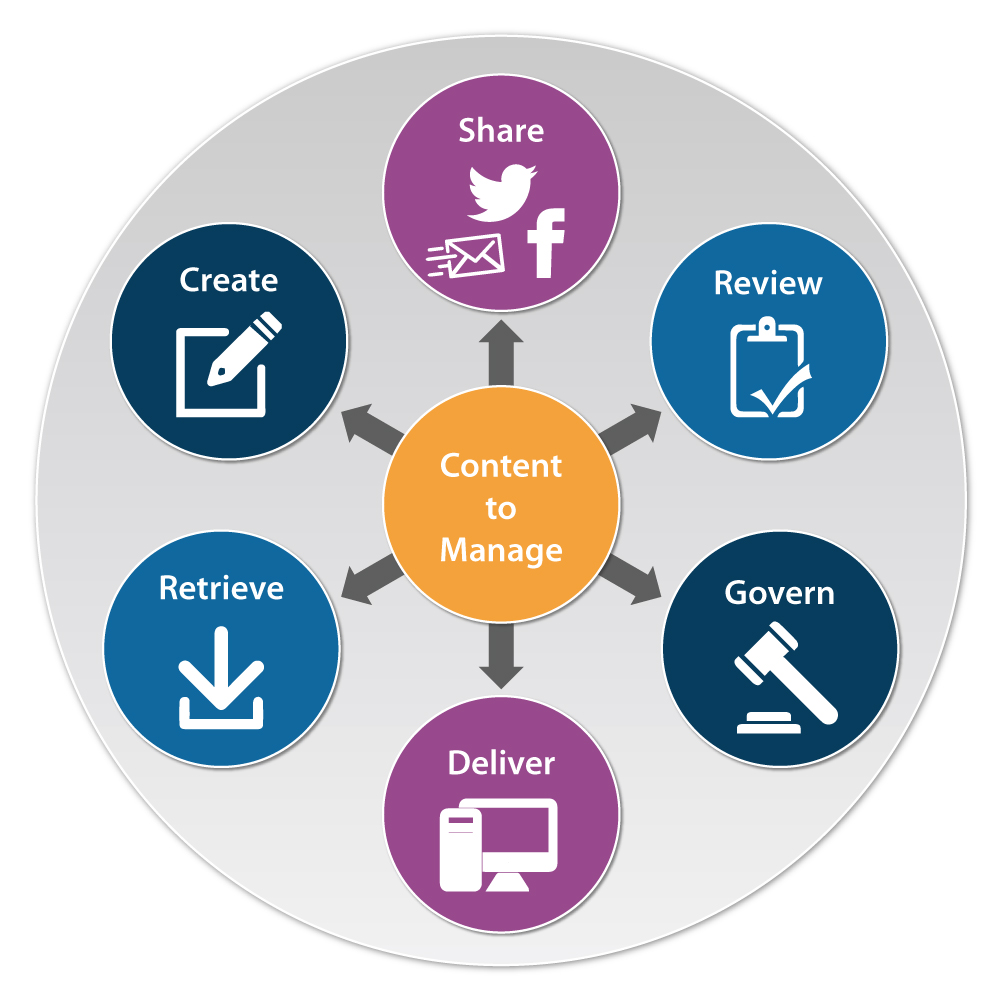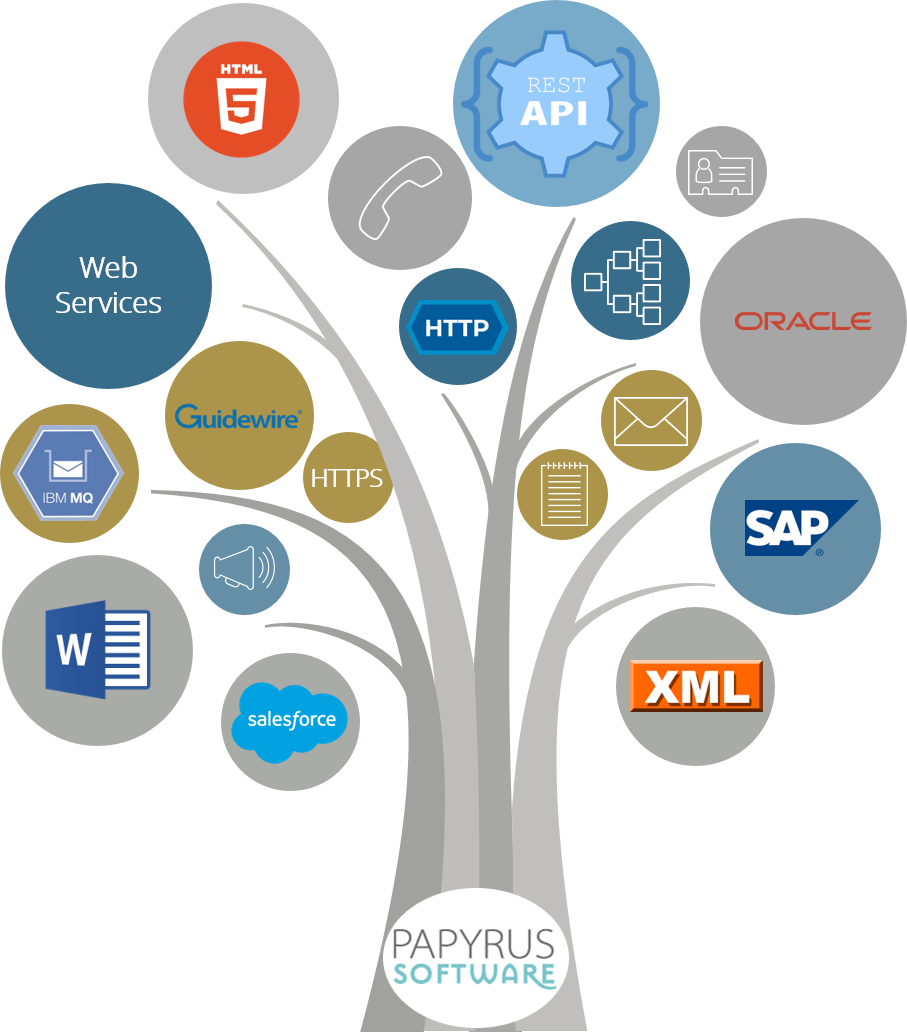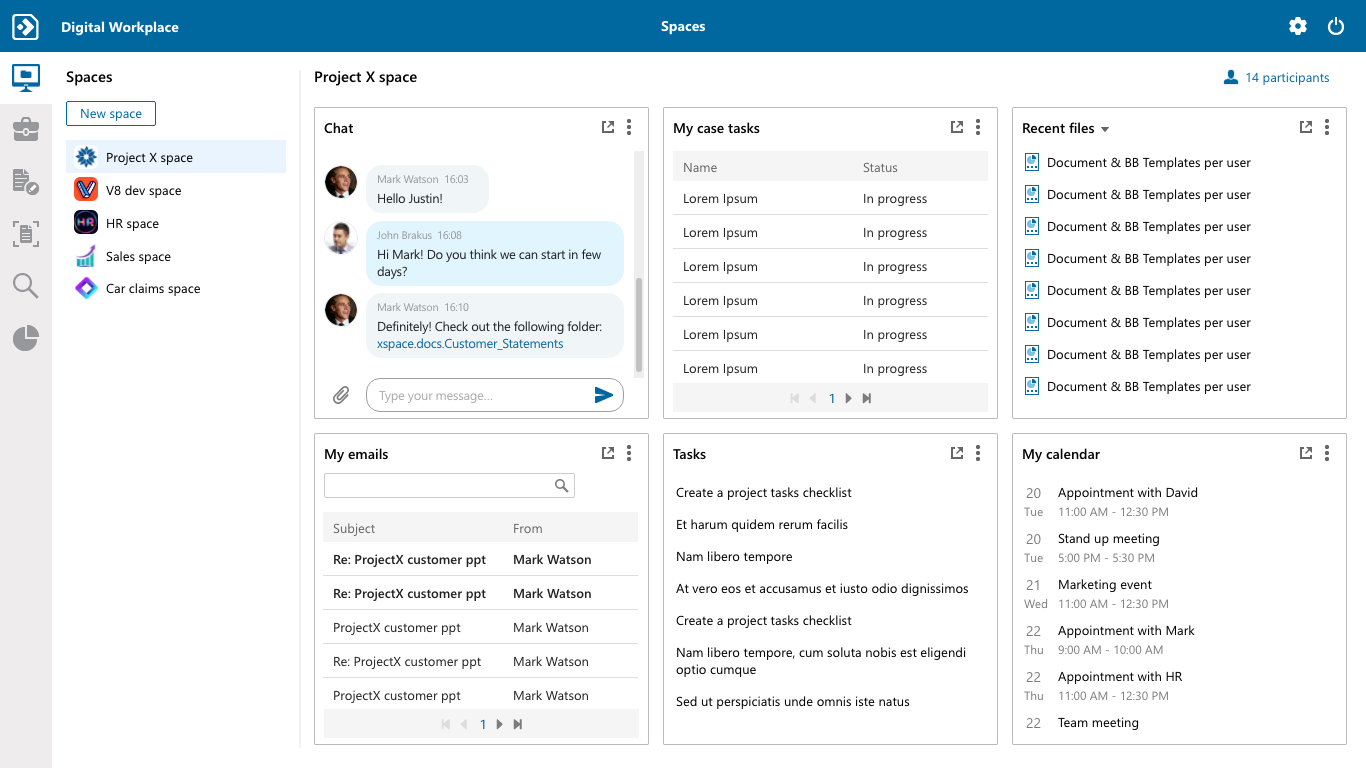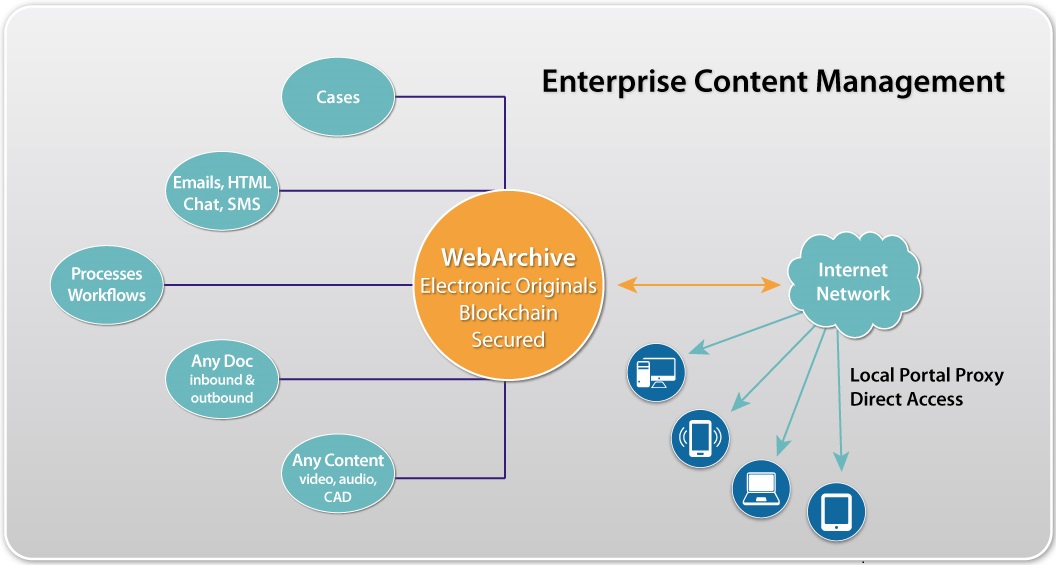The importance of Enterprise Content Services for HR, CRM and ERP
Content is a hugely important part of any company's business - it forms the data and information used by employees, customers, and partners; it drives business processes; and if poorly managed, it can put the company at risk. Unfortunately, companies are not realizing the full potential of content in the new digital value chain.

Content must evolve from tactical and disconnected document repositories to a modern content services structure that is easily accessible to employees and accessible in real time to customers at every stage of their journey. Companies that can connect their dynamic, experiential work environment with an engaging digital customer experience will gain a competitive advantage through streamlined business processes and increased customer satisfaction. The whole ecosystem needs to be connected and work together to promote a sharing of information to every person involved in the process.
The digital Workplace
With the growing adoption of hybrid work models, employees conduct business from diverse locations such as corporate facilities, in the field, and in home offices. Secure, agile access to all services around the content life cycle is crucial for business success. Now employees can easily create, collaborate, edit, repurpose, review, route, approve, and publish content. With an intuitive 360-degree view of the customer, the employee can directly accept customer requests via synchronous channels (telephone, video call) and asynchronous channels (email, letter, etc.) in a single user interface.
Spaces
Employees working on customer requests require fast access to content in the digital workplace for both knowledge and efficiency. There is also no need for employees to ‘switch’ between systems and channels, both in active content and archived content, because all of the relevant content is accessible at any moment, thus ensuring frictionless work practices.
Archive for Convenience
Organizations benefit from a centralized content repository that manages the entire lifecycle of content in the system until it expires or is retired from circulation. At that point, the "archive" becomes real-time access to content at a specific point in time. Digital collaboration is about internal and external stakeholders creating, consuming, and sharing content to achieve specific business outcomes together. Difficulty in finding the information to perform job-specific tasks is one of the key drivers for organizations to select Papyrus.
Flexible Integration with Existing Applications

To ensure success for the business user, it needs to be integrated with all data sources, including line-of-business applications like Salesforce and SAP and digital workplace technologies in the flow of how work gets done.
- Online channels/portals – Web Servises, SOAP, HTTPS
- CEmail/messaging – SMP, POP3, MAPI, IMAP, SMS
- Mainframe – JES 2/3 & CICS, MQ
- Databases – Oracle, DB2, MS-SQL, ODBC
- Business Application integration – SAP, Social, Rest
- Java, .NET, MQ-Series, FILE, CML, FAX, VOIP, LDAP, CMIS
Content Governance
Papyrus Business Designer enables the creation of customer communications such as personalized interactive webforms and instant online letters from quote creation to digital contract e-signature. Any object in a system can be archived at a specific point in time with support for specific storage and management attributes. Papyrus Depot can be defined as temporary, staged or permanent, and installed as a single Standard Depot or as a Distributed Depot with different ways of implementation. Retention & Disposition can be defined with the document category/type.





